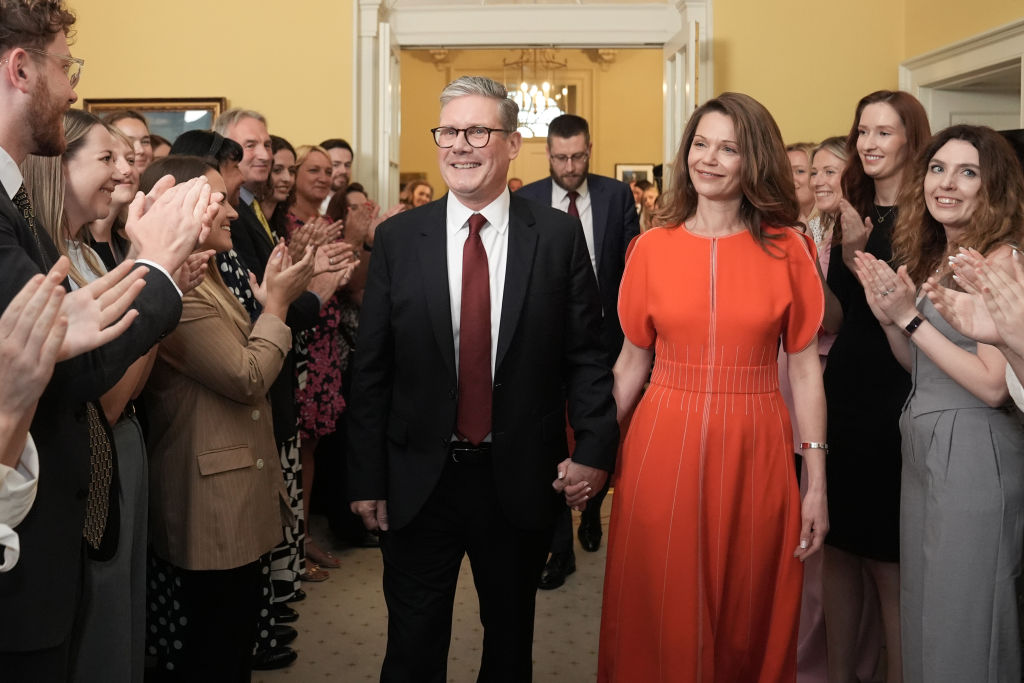Keir Starmer has given his first speech as prime minister. Labour’s seventh leader to make it to 10 Downing Street walked up the pavement to his new home to cheers from supporters and campaigners gathered on the street. He and his wife Victoria made an effort to stop, thank and hug their friends and family on the way up. Given Starmer has won a majority close to Tony Blair’s 1997 landslide, he could be forgiven for striking a slightly triumphalist tone. Instead, Starmer treaded carefully. He said: ‘With respect and humility I invite you all to join this government of service… our work is urgent and we begin it today.’
Starmer’s team believe they need to hit the ground running
Starmer’s cautious tone appeared to take into account the fact that although he has won big in terms of seats – 412 at the time of writing – the vote share is close to what the party won under Jeremy Corbyn in 2019. Therefore it can be argued that his landslide victory is as much about an anti-Tory vote than a vote for Starmer. He began the speech by praising his predecessor Rishi Sunak for his hard work in office. He then tried to reach out across the political divide as he promised to restore public service to politics: ‘Whether you voted Labour or not – in fact especially if you did not, I say to you directly my government will serve you – politics can be a force for good, we will show that.’
As for how Starmer plans to do this, he returned to some of his regular themes – promising stability, a decade of national renewal and the return of politics to public service. He said under his government he would try to create a politics that will ‘tread more lightly on our lives’. He repeated his mantra of ‘country first, party second’. This extends, he suggested of his agenda, to governing ‘unburdened by doctrine’. That suggests Starmer is willing to make decisions in government – such as on public sector reform – that could jar with some on the Labour-left. He said service was a ‘pre-condition’ of good government, but ‘our country needs a bigger reset’ and he now has the mandate to do just this.
The big question of course is what Starmer believes that reset needs to involve – and whether it will take his party or voters by surprise. The Prime Minister said the hard work would begin today – and he is expected to appoint his Cabinet in due course. Next week he is tipped to go to the Nato summit, and his team have suggested one of their first priority will be changes to planning rules. Labour have also promised an investment summit within 100 days. To show he is serious about governing, Starmer is expected to delay parliamentary recess until August. His team believe they need to hit the ground running – it’s how Starmer hopes to convince the many voters who backed other parties to get behind his agenda.







Comments